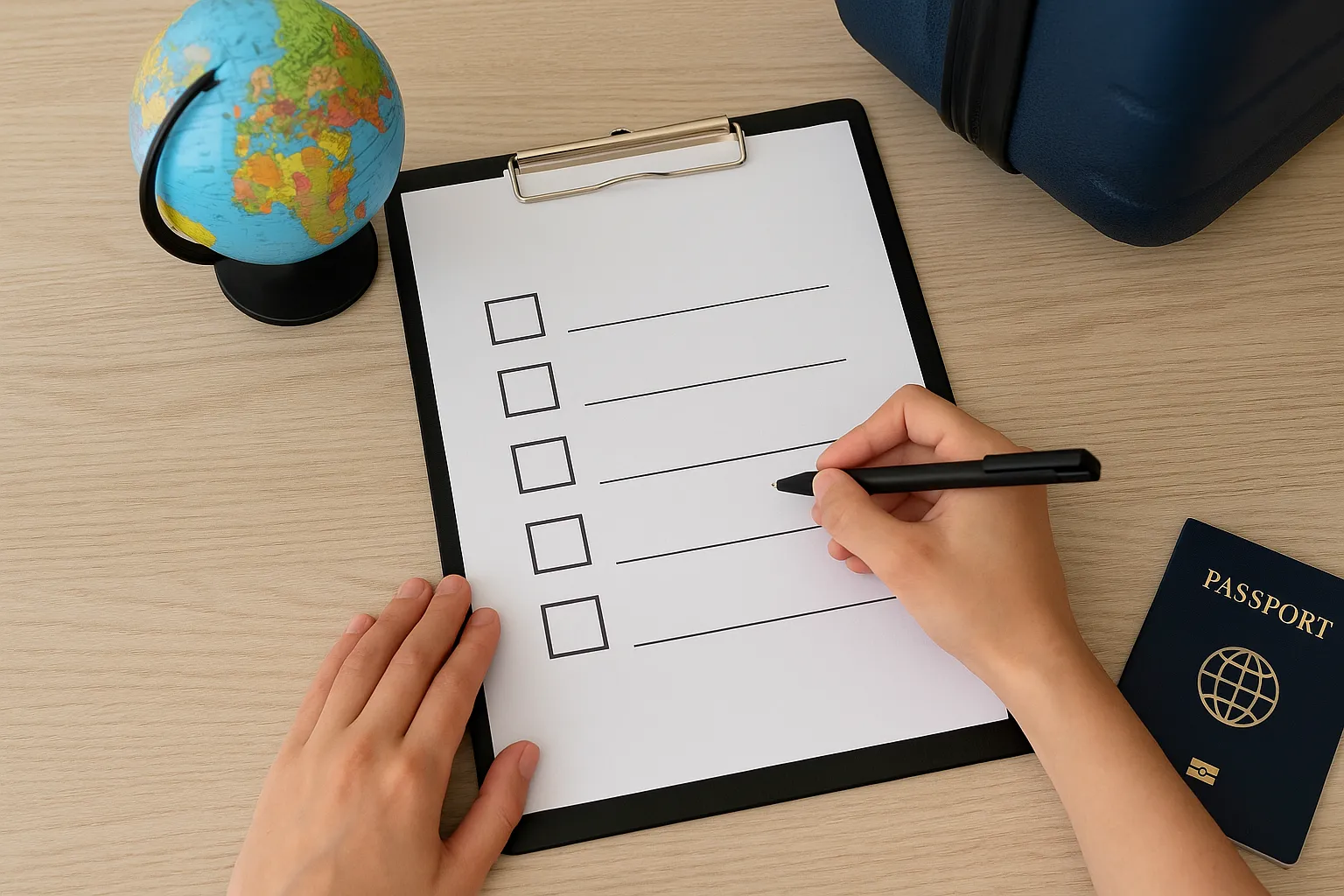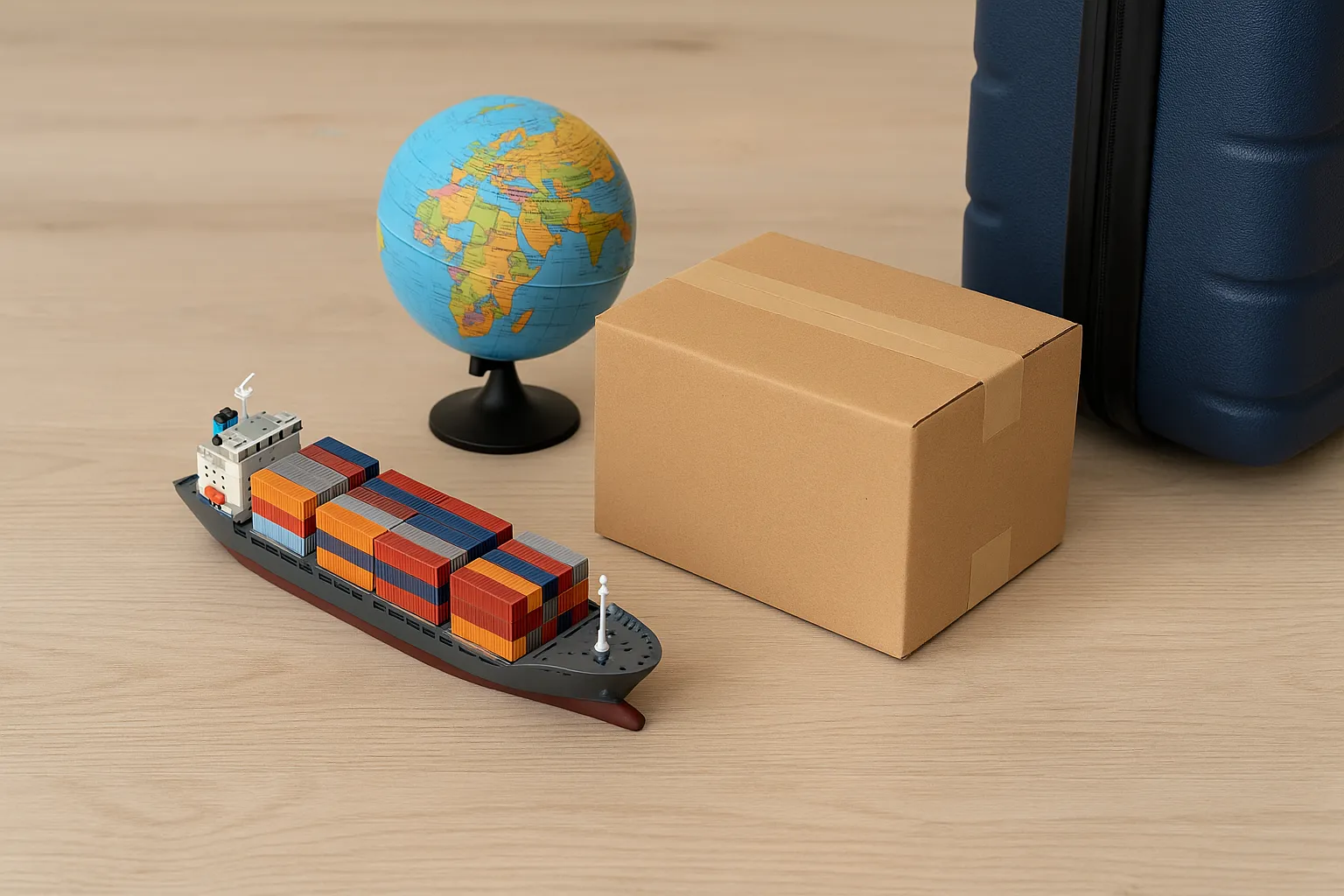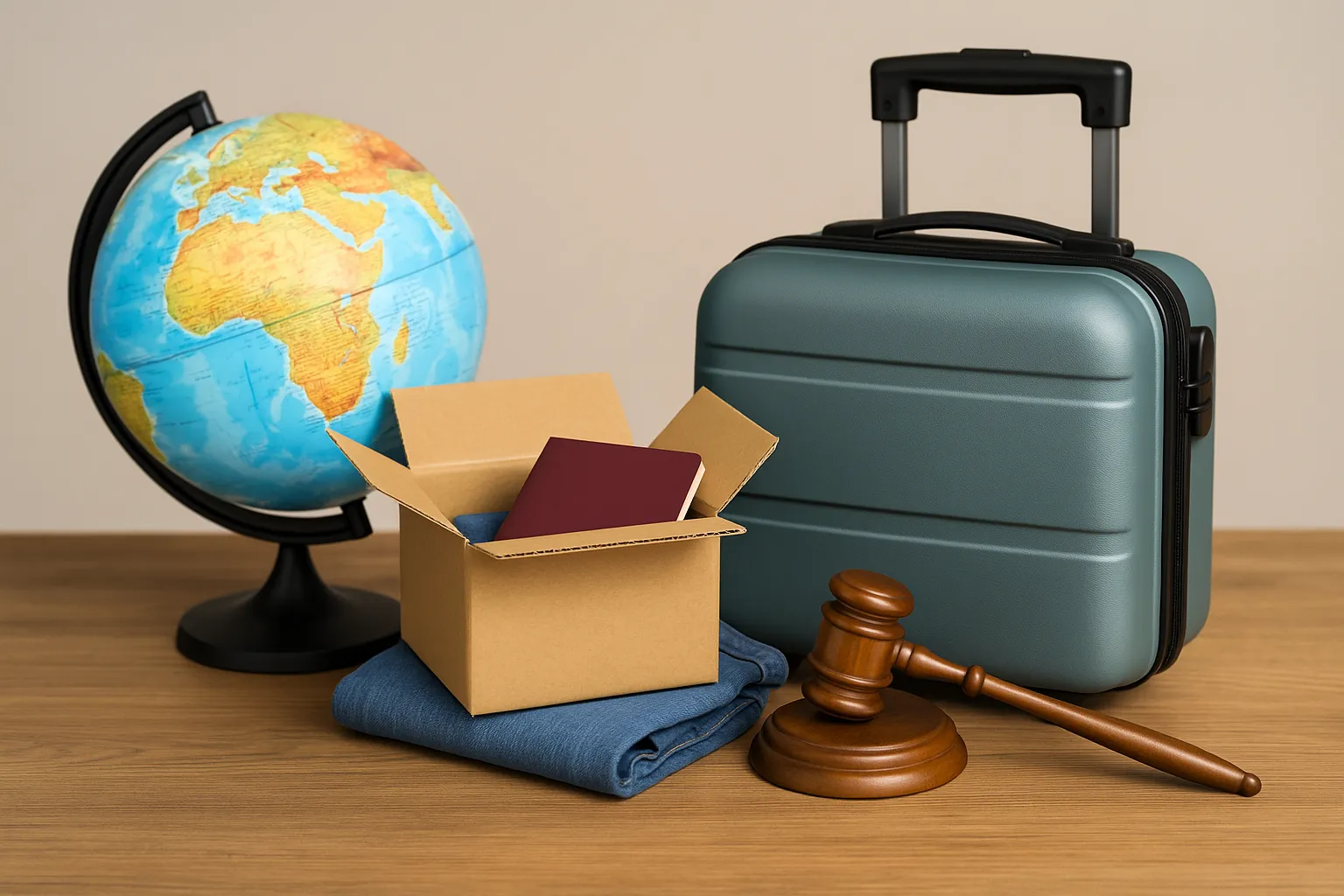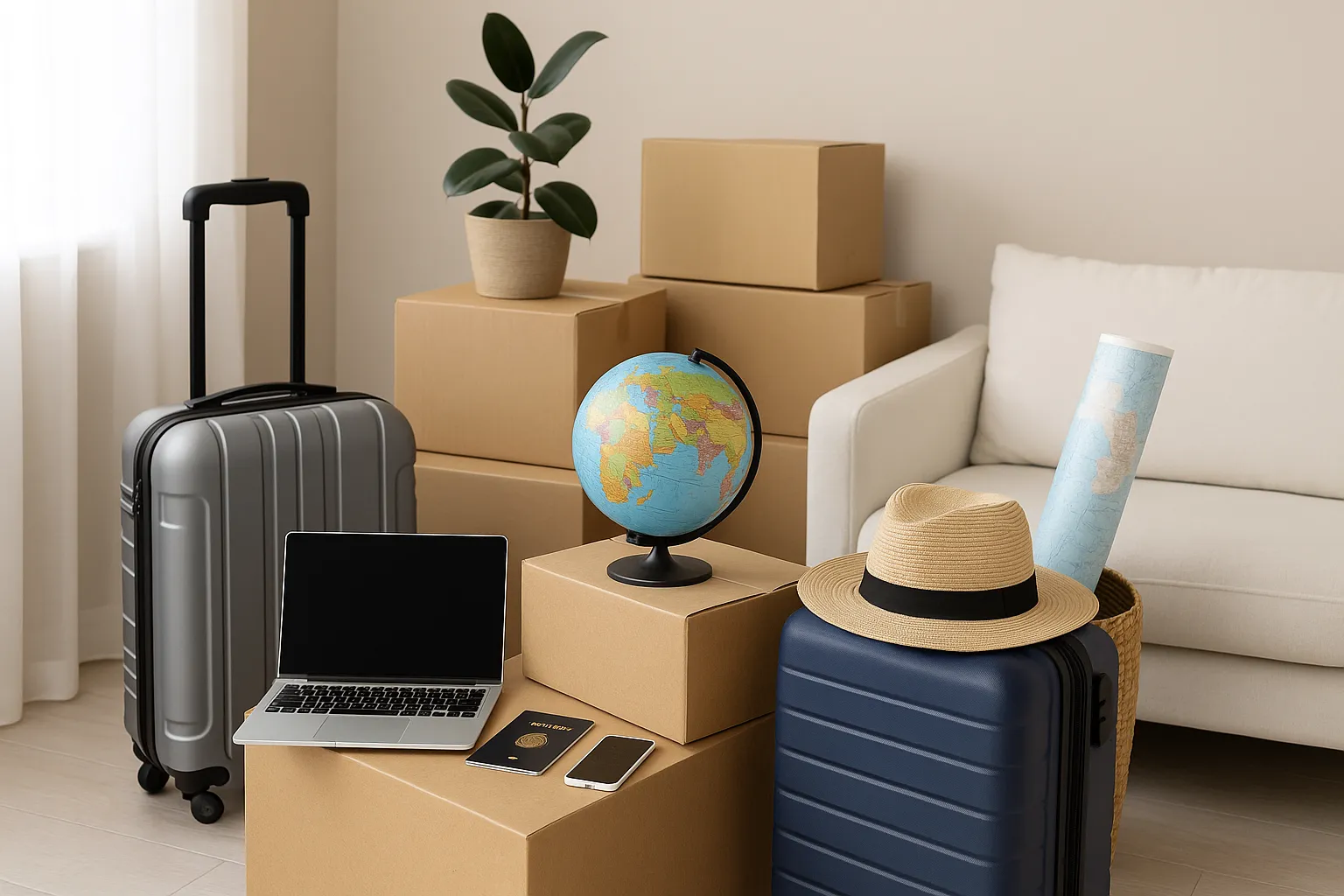Are you feeling completely lost about your international move? That overwhelming feeling is totally normal when you’re planning to relocate abroad.
But have you thought about just how much time and money an international move can take?
Recent data shows these moves typically cost between $7,000 and $12,000, and underestimating these factors can quickly snowball into bigger problems.
That’s why you need a solid moving abroad checklist and a smart container shipping strategy to make the whole process feel less stressful.
Over the next sections, we’ll walk you through the essentials you need to organise before shipping, like making sure your important documents are ready and figuring out the best way to pack your container.
First, let’s break down the essentials you need to organise before shipping.
How to Create and Stick to a Moving Abroad Checklist

Creating a moving abroad checklist is easy, but actually following it? That’s where most people struggle. You write down everything you need to do, then life gets busy and you forget half the items on your list.
But international moves need way more planning time than moving within your own country. And the consequences of poor planning include missed visa deadlines, shipping delays, and costs that spiral beyond your budget.
So let’s break down exactly what you need to do and when you need to do it.
Plan Ahead or Pay Later
Here’s the biggest mistake people make: they start planning way too late. Professional movers say you should begin planning your international move at least three months before you want to leave. For more complicated moves, some experts even suggest six months or a full year.
Also, remember to plan out your visa processing. This alone can take anywhere from four to nine months to complete. Then, renewing a passport can add another six to eight weeks.
What to Tick Off Early
Getting your essential documents sorted prevents major headaches later. These tasks take time, so tackle them first.
Documents
Your important documents should be your absolute priority. Start collecting these essential papers right away: passports with at least six months left before they expire, birth certificates, marriage certificates, and medical records.
Many of these documents will need official translation and special authentication, too.
Money
Banking setup is another thing that can’t wait until the last minute. Lots of countries want to see proof that you have enough money, or they might require you to open a local bank account before they’ll give you a visa. So, do some research beforehand.
Utilities and Housing
Don’t forget about utilities either. You’ll need to coordinate cancelling services at your current home and getting them connected at your new place. Some countries require deposits or proof that you actually live there before they’ll connect your electricity or internet.
Sort these administrative tasks beforehand so you can focus on packing and shipping logistics as your moving day gets closer.
Don’t Forget the Personal Stuff
Your personal arrangements need attention, too. These smaller tasks often catch people off guard on moving day.
- Health essentials: Your prescription medication needs special attention. Make sure to bring at least a month’s supply with you, and research whether your medications are actually legal and available in your destination country. Some medications that are perfectly normal here might be banned elsewhere, which could cause you serious legal trouble.
- Digital backup: Cloud backups will protect your digital life during this whole transition period. Upload important photos, documents, and files before you ship any of your electronics. International shipping can sometimes damage devices, so having secure backups prevents you from losing everything important.
- Pets: If you have pets, their relocation requires months of planning. Vaccinations, health certificates, and quarantine arrangements all need to be sorted out well ahead of time. Some countries actually require six-month quarantine periods that can cost thousands of pounds.
Once you’ve got your planning sorted and documents ready, it’s time to tackle the biggest challenge: actually getting your belongings from point A to point B.
Container Shipping Tips Everyone Should Know Before Moving Abroad

Most people think container shipping is pretty straightforward until they get smacked with surprise fees and find out their belongings arrived damaged.
Here’s what the moving industry doesn’t always tell you upfront, plus the practical steps that actually work.
Know Your Container Load Options
You’ve basically got two main choices for shipping your stuff: rent the entire container or share space with other people’s things. A full container load means you get the whole container to yourself, even if you can’t fill it. This usually costs between four to nine months, but you get exclusive use and much faster shipping times.
Another option is less-than-container-load, which lets you share space with other people’s belongings. You only pay for the space you actually use, which averages around $1,600.
But there are some downsides to consider. Like when you share a container, your stuff gets handled way more often, which increases the chances of damage. Plus, you might get stuck waiting if other people’s cargo runs into customs problems or other delays.
Here’s a helpful rule: if your shipment reaches around 10 cubic metres, you should probably consider going for the full container option. You’ll get much better protection and more predictable timing for just a little bit more money.
Costs That Sneak Up on You
Next, port charges can easily add 10-15% to your total shipping costs, which completely catches most people off guard. But the biggest surprise is usually something called demurrage fees. These can range from $75 to $300 per container per day, if you don’t collect your stuff quickly enough.
Most ports give you about seven free days to pick up your container after it arrives. Once that time is up, the charges start piling up really fast. Things like bank holidays, customs delays, or truck shortages can easily push you over the limit, even when it’s not your fault at all.
Protect What You Pack
Are you aware that moving company “insurance” isn’t actually real insurance at all. It’s called valuation coverage, and the basic option is pretty much useless. Standard coverage only pays 60 pence per pound of weight. So, if your $1,000 television gets smashed, you’d only get about $18 back.
That’s why you need to look into full value protection instead. This covers repair, replacement, or cash settlement based on what you declare your items are worth.
Once you’ve got your container on its way, there are still loads of important details to handle before you actually land in your new country.
Your First 30 Days Abroad: Packing Tips and Local Law Essentials

The weeks before your move and those first days in your new country can make or break your entire experience.
Let’s walk through the practical steps that really count when you’re trying to turn a foreign country into your new home.
Smart Packing for Less Stress
Just throwing everything into boxes randomly will create a nightmare when you’re trying to settle into your new home. Here are many better ways to do this.
- Use colour-coded labels: Colour-coded labels are absolutely worth the extra effort. Instead of trying to read handwritten labels that say “MB” (which could mean Master Bedroom or Master Bathroom), use different coloured stickers for each room. Professional movers will also work much faster when they can instantly see where each box belongs.
- Essential-first box: Create an “essentials-first” box that travels with you, not in the container, as it might take weeks longer than expected to arrive. Start by packing enough clothes for two weeks, important documents, phone chargers, basic toiletries, and any prescription medications you need.
- Invest in durable packing materials: Don’t skimp on quality packing materials either. Invest in proper cardboard boxes, bubble wrap, and waterproof plastic covers. International shipping involves more handling than domestic moves, which means higher chances of damage.
Make sure you print out your colour key before the movers show up. Then stick copies on every door at your new place so everyone knows where things go. Professional movers actually love this system because it gets rid of confusion and makes unloading much faster.
Respect the Local Laws
Every country has its own rules that can catch newcomers completely off guard. Unfortunately, not knowing about these laws won’t protect you from getting fines or ending up in legal trouble, so it’s worth doing your homework ahead of time.
- Customs restrictions: Take time to research banned items carefully. For example, some countries won’t let you bring in common medications, certain electronics, or even specific foods.
- Registration requirements: Most countries actually require you to register your new address with local authorities within just a few days of arriving. It’s not something you can wait months to do.
- Local ID and healthcare: You’ll need to get your resident ID card and register with the healthcare system pretty much immediately. If you wait too long, you might end up paying for expensive private treatment.
The best move is to research your destination’s specific import rules before you start packing anything. What’s perfectly legal in your home country might get you into serious trouble somewhere else.
What to Tackle in the First Month
Now, your first 30 days abroad really do set the tone for everything that comes after. If you tackle the essential stuff systematically, you can avoid loads of unnecessary stress down the road.
- Utility setup: This should be one of your first priorities. Electricity, water, internet, and heating can take weeks to connect in some countries. So, contact providers before you arrive and try to schedule connections for your first week if possible.
- Bank notifications: Next, notify your banks immediately about your move and set up international banking arrangements. This is important because many countries require proof of a local bank account to open other accounts or sign rental agreements.
- Healthcare and school registration: School enrolment and healthcare registration usually involve loads of paperwork and waiting periods. So, start these processes as soon as you have a local address, since many services require proof of residency before they’ll accept your applications.
The best approach is to create a priority list and handle the most urgent stuff first. Banking, utilities, and healthcare registration should all happen within your first week. Other tasks can definitely wait until week two or three when you’ve got your bearings.
Ready for Your New Life Abroad?
You’re almost there! These final tasks might seem small, but they’re the ones that save you from last-minute panic and help you leave with complete confidence.
Final tasks you’ll thank yourself for:
- Do a final walk-through of every room to check drawers, look behind appliances, and collect any borrowed items you still need to return.
- Friends, family members, banks, and essential services all need your new address, so send those update emails now.
- Pack a special moving day bag with your ID, wallet, phone chargers, and photocopies of all your paperwork.
- One final phone call to your moving company will confirm container load access and timing.
- Don’t forget to cancel subscriptions you won’t need and set up mail redirection to your new address.
- Your first night will be much easier if you pack a separate bag with basic bedding, toiletries, and comfortable pyjamas.
- Lastly, take a moment to breathe deeply and recognise what you’ve accomplished – you’ve actually done everything needed for this huge step.
Your new adventure begins the moment you step onto that plane, and you’ll feel so much better knowing you’ve handled every single essential detail.
The stress-free international move you’ve created shows that good relocation prep is what separates total disorder from feeling confident about your future.
